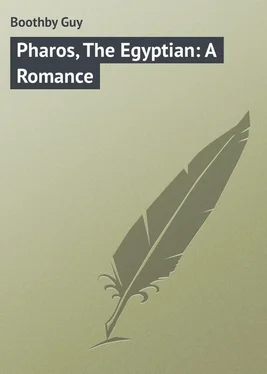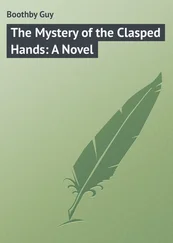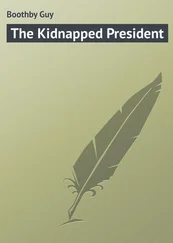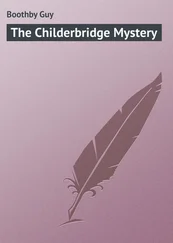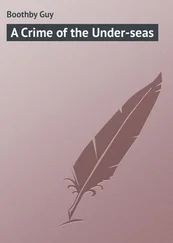Guy Boothby - Pharos, The Egyptian - A Romance
Здесь есть возможность читать онлайн «Guy Boothby - Pharos, The Egyptian - A Romance» — ознакомительный отрывок электронной книги совершенно бесплатно, а после прочтения отрывка купить полную версию. В некоторых случаях можно слушать аудио, скачать через торрент в формате fb2 и присутствует краткое содержание. Жанр: foreign_prose, на английском языке. Описание произведения, (предисловие) а так же отзывы посетителей доступны на портале библиотеки ЛибКат.
- Название:Pharos, The Egyptian: A Romance
- Автор:
- Жанр:
- Год:неизвестен
- ISBN:нет данных
- Рейтинг книги:4 / 5. Голосов: 1
-
Избранное:Добавить в избранное
- Отзывы:
-
Ваша оценка:
- 80
- 1
- 2
- 3
- 4
- 5
Pharos, The Egyptian: A Romance: краткое содержание, описание и аннотация
Предлагаем к чтению аннотацию, описание, краткое содержание или предисловие (зависит от того, что написал сам автор книги «Pharos, The Egyptian: A Romance»). Если вы не нашли необходимую информацию о книге — напишите в комментариях, мы постараемся отыскать её.
Pharos, The Egyptian: A Romance — читать онлайн ознакомительный отрывок
Ниже представлен текст книги, разбитый по страницам. Система сохранения места последней прочитанной страницы, позволяет с удобством читать онлайн бесплатно книгу «Pharos, The Egyptian: A Romance», без необходимости каждый раз заново искать на чём Вы остановились. Поставьте закладку, и сможете в любой момент перейти на страницу, на которой закончили чтение.
Интервал:
Закладка:
"The letter finished, I replaced it in its envelope and turned my attention to the manuscript. When I began to read, the hands of the clock upon the chimneypiece stood at twenty minutes to twelve, and they had reached a quarter past five before I had completed my task. All that time I read on without stopping, filled with amazement at the story my poor friend had to tell, and consumed with a great sorrow that his brilliant career should have terminated in such an untoward manner.
"Now, having completed my share of the task, as required of me in the letter, I send the manuscript by special messenger to you. Read it as he desires, and when you have done so let me have your opinion upon it. Then I will come up to town, and we will arrange to carry out the last portion of our poor friend's request together. In the meantime,
"Believe me ever your friend,
"William Betford."
Six months later.
Trevelyan and I have completed the task allotted to us. We have read Forrester's manuscript, and we have also discovered a publisher who will place it before the world. What the result is to be it remains for time to decide.
CHAPTER I
If ever a man in this world had a terrible – I might almost go so far as to add a shameful – story to relate, surely I, Cyril Forrester, am the one. How strange – indeed, how most unbelievable – it is I do not think I even realised myself until I sat down to write it. The question the world will in all probability ask when it has read it is, why it should have been told at all. It is possible it may be of opinion that I should have served my generation just as well had I allowed it to remain locked up in my own bosom for all time. This, however, my conscience would not permit. There are numberless reasons, all of them important and some imperative beyond all telling, why I should make my confession, though God knows I am coward enough to shrink from the task. And if you consider for a moment, I think you will understand why. In the first place, the telling of the story can only have the effect of depriving me of the affection of those I love, the respect of those whose good opinion I have hitherto prized so highly, the sympathy of my most faithful friends, and, what is an equal sacrifice as far as I am personally concerned – though it is, perhaps, of less importance to others – the fame I have won for myself after so hard a struggle. All this is swept away like drift-wood before a rising tide, and as a result I retire into voluntary exile, a man burdened with a life-long sorrow. How I have suffered, both in body and mind, none will ever understand. That I have been punished is also certain, how heavily you, my two old friends, will be able to guess when you have read my story. With the writing of it I have severed the last link that binds me to the civilized world. Henceforth I shall be a wanderer and an outcast, and but for one reason could wish myself dead. But that is enough of regret; let me commence my story.
Two years ago, as you both have terrible reason to remember, there occurred in Europe what may, perhaps, be justly termed the most calamitous period in its history, a time so heart-breaking, that scarcely a man or woman can look back upon it without experiencing the keenest sorrow. Needless to say I refer to the outbreak of the plague among us, that terrible pestilence which swept Europe from end to end, depopulated its greatest cities, filled every burial-place to overflowing, and caused such misery and desolation in all ranks of life as has never before been known among us. Few homes were there, even in this fair England of ours, but suffered some bereavement; few families but mourn a loss the wound of which has even now barely healed. And it is my part in this dreadful business that I have forced myself with so much bitter humiliation to relate. Let me begin at the very beginning, tell everything plainly and straightforwardly, offer nothing in extenuation of my conduct, and trust only to the world to judge me, if such a thing be possible, with an unbiassed mind.
I date my misery from a wet, miserable night in the last week of March – a night without a glimpse of the moon, which, on that particular evening, was almost at its full. There had been but one solitary hour of painting-light all day; short as it was, however, it was sufficient for my purpose. My picture for the Academy was finished, and now all that remained was to pack it up and send it in. It was, as you remember, my eighth, and in every way my most successful effort. The subject I had chosen had enthralled me from the moment it had first entered my head, and the hours of thought and preparation it had entailed will always rank among the happiest of my life. It represented Merenptah, the Pharaoh of the Exodus, learning from the magicians the effect of his obstinacy in the death of his first-born son. The canvas showed him seated on his throne, clad in his robes of state. His head was pushed a little forward, his chin rested in his hand, while his eyes looked straight before him as though he were endeavouring to peer into the future in the hope of reading there the answer to the troubled thoughts inside his brain. Behind him stood the sorcerers, one of whom had found courage to announce the baneful tidings.
The land of Egypt has always possessed a singular attraction for me – a taste which, doubtless, I inherit from my poor father, who, as you are aware, was one of the greatest authorities upon the subject the world has ever known.
As I have said, it was a miserable night, dark as the pit of Tophet. A biting wind whistled through the streets, the pavements were dotted with umbrella-laden figures, the kennels ran like mill-sluices, while the roads were only a succession of lamp-lit puddles through which the wheeled traffic splashed continuously. For some reason – perhaps because the work upon which I had been so long and happily engaged was finished and I felt lonely without it to occupy my mind – I was stricken with a fit of the blues. Convinced that my own company would not take me out of it, I left my studio in search of more congenial society. This was soon forthcoming; and you will remember, Betford and Trevelyan, that we dined together at a little restaurant in the neighbourhood of Leicester Square, and followed the dinner up with a visit to a theatre. As ill-luck would have it, I was in the minority in the choice of a place of entertainment. The result was disastrous. Instead of ridding myself of my melancholy, as I had hoped to do, I intensified it, and when, at the end of the evening, I bade you farewell in the Strand, my spirits had reached a lower level than they had attained all day. I remember distinctly standing beneath a gas-lamp at the corner of Villiers Street, as the clocks were striking midnight, feeling disinclined to return to my abode and go to bed, and yet equally at a loss to know in what manner I should employ myself until there was some likelihood of slumber visiting my eyelids. To help me make up my mind I lit a fresh cigar and strolled down toward the river. On the pavement, at the foot of the steps leading to Hungerford Bridge, a poor tattered creature, yet still possessing some pretensions to gentlemanly address, came from beneath the archway and begged of me, assuring me most solemnly that, as far as he was concerned, the game was played out, and if I did not comply with his request, he would forthwith end his troubles in the river. I gave him something – I can not now remember what – and then, crossing the road, made my way along the Embankment toward Cleopatra's Needle. The rain had ceased for the moment, and in the north a few stars were shining. The myriad lights of the Embankment were reflected in the river like lines of dancing fire, and I remember that behind me a train was rolling across the bridge from Charing Cross with a noise like distant thunder. I suppose I must have been thinking of my picture, and of the land and period which had given me the idea. At any rate, I know that on this occasion the ancient monument in front of which I soon found myself affected me as it had never done before. I thought of the centuries that had passed since those hieroglyphics were carved upon the stone, of the changes the world had seen since that giant monolith first saw the light of day. Leaning my elbows on the parapet, I was so absorbed in my own thoughts that when a sudden cry of "Help, help!" rang out from the river it was with a sensible shock that I returned to the commonplace and found myself standing where I was. A moment later I was all action. The cry had come from the other side of the Needle. I accordingly hastened to the steps farthest from me, shouting, as I went, in my excitement, that a man was drowning. It might have all been part of some evil dream – the long line of silent Embankment on either side, the swiftly-flowing river, and that despairing appeal for help coming so suddenly out of the black darkness. Then I became aware that I was not alone on the steps. There was another man there, and he stood motionless, peering out into the dark stream, scarcely a dozen paces from me.
Читать дальшеИнтервал:
Закладка:
Похожие книги на «Pharos, The Egyptian: A Romance»
Представляем Вашему вниманию похожие книги на «Pharos, The Egyptian: A Romance» списком для выбора. Мы отобрали схожую по названию и смыслу литературу в надежде предоставить читателям больше вариантов отыскать новые, интересные, ещё непрочитанные произведения.
Обсуждение, отзывы о книге «Pharos, The Egyptian: A Romance» и просто собственные мнения читателей. Оставьте ваши комментарии, напишите, что Вы думаете о произведении, его смысле или главных героях. Укажите что конкретно понравилось, а что нет, и почему Вы так считаете.
